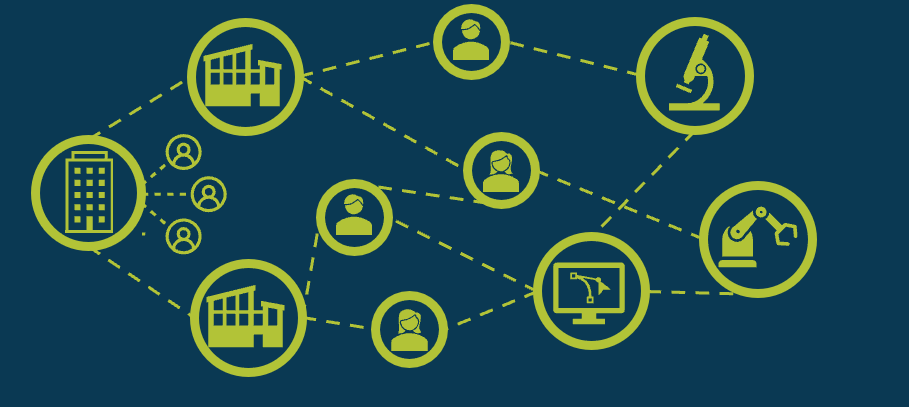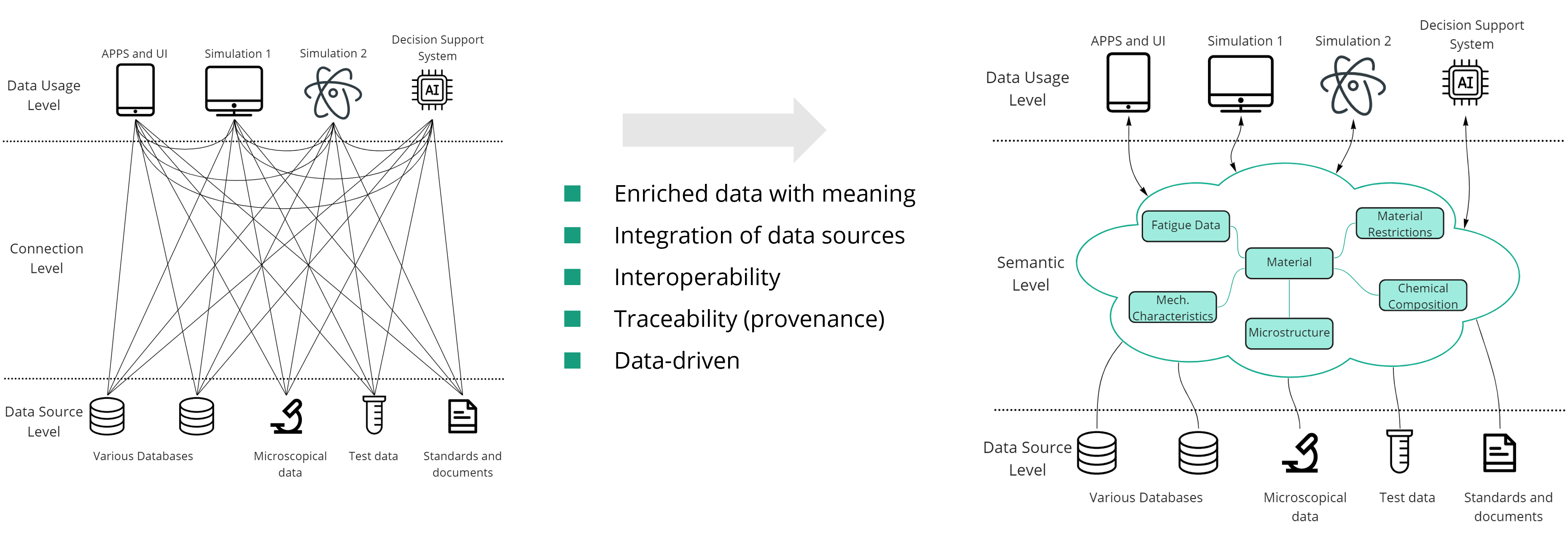Vocabulary Collection and Semantics Management
We develop tools that support an agile approach to ontology development, starting with vocabulary collection. One of our key offerings is the Semantics Manager, a web-based tool designed to facilitate the collection, organization, and management of terms and ontologies within a system. This tool employs a bottom-up approach to streamline the process of ontology creation and maintenance.
The Semantics Manager helps organize and manage terminology by grouping them into clear categories aligned with specific use cases. It can import ontologies from commonly used standard vocabularies, such as Dublin Core (for general metadata) and FOAF (for describing people and their relationships). The system also supports regularly updating these terminologies from trusted online sources to keep them accurate and up to date. For example, it can refresh specialized vocabularies used in materials science and engineering. Additionally, a powerful search function lets users quickly find and apply the terms they need across all categories.
By combining these features, the Semantics Manager simplifies vocabulary collection and semantics management, ensuring that systems are equipped with organized, accurate, and up-to-date ontological resources.
Training and Workshops
We offer training sessions for organizations on semantic technologies and ontologies, focusing on their application in modern data management concepts for materials science and manufacturing. Beyond theoretical foundations, our programs include practical guidance on developing and customizing ontologies to model materials, experiments, and manufacturing processes effectively.
Our program is designed for participants from both industry and academia, including researchers, laboratory staff, technicians, and professionals in research and development. It is especially suited for those involved in the storage and analysis of materials and process data, who wish to explore the fundamentals of modern data management concepts or bring their existing knowledge up to date. No prior technical expertise in data management is required.
Participants will gain a foundational understanding of modern data management concepts with a focus on materials, experiments, and process data. Key topics include semantic technologies (particularly ontologies), knowledge graphs, data spaces, FAIR (Findable, Accessible, Interoperable, and Reusable) data principles, and the description of data processing workflows. By the end of the workshop, participants will understand how and under what conditions materials, experimental, and process data can be efficiently leveraged in processing workflows and component applications using modern data management approaches.
By the end of the training, participants will be able to:
- Identify and explain key concepts such as ontologies, knowledge graphs, data spaces, and FAIR data principles.
- Advocate for the adoption of modern data management principles in their organizations, with a focus on material and process data.
- Develop and customize semantic models (ontologies) to capture their domain knowledge effectively.
- Apply semantic technologies to simple examples and translate these into practical solutions.
- Evaluate which implementations are most relevant and beneficial for their specific organizational or operational needs.
The training provides a comprehensive introduction to modern data management, empowering participants to harness semantic technologies for improved efficiency and insight in their work.
 Fraunhofer Institute for Mechanics of Materials IWM
Fraunhofer Institute for Mechanics of Materials IWM
